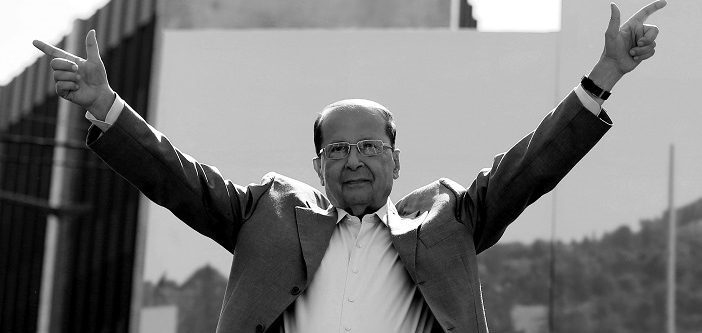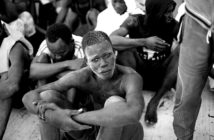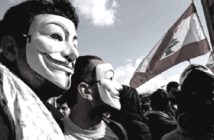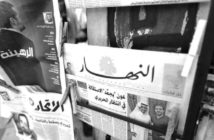Since the 25th of May 2014, the date when former president Michel Sleiman’s term ended, Lebanon failed to elect a president. The 45th session to elect a new Lebanese president met a fate similar to those of the past, with Speaker of Parliament Nabih Berri adjourning the next session to October 31st due to a lack of quorum.
حان وقت خروج لبنان من الظلمة التي رافقته على مدى سنتين وهي ظلمة الفراغ الرئاسي الذي عطّل المؤسسات وحال دون تأليف حكومة جديدة ودون السعي إلى انتخابات جديدة. أمّا الاختيار فوقع على الجنرال ميشال عون رئيساً للجمهورية. من ناحية، إن خروج لبنان من هذا الفراغ الرئاسي يساعد على تحريك العجلة الاقتصادية وتنشيط المؤسسات ولكن من ناحية أخرى، يطرح تساؤلاتٍ عدّة، أهمّها: هل سيشكّل ميشال عون كونه رئيساً للجهورية، محامي دفاع عن حزب الله ومواقفه في المحافل الدولية؟ ماذا سيكون موقفه في الشارع السنّي؟ هل سيتمكّن من خلق حالة من الاطمئنان لدى السنّة كما فعل لحزب الله؟ علماً أنه في حال فشل في خلق استقرار واطمئنان لدى الأكثرية السنّية في البلاد، سيسبب ذلك حقداً دفيناً لدى هذه الشريحة من المجتمع ويدفعها نحو التطرّف. الوقت كفيل لتبيان ما إن كنّا أخطأنا في الاختيار أو إن كان منصب الرئاسة غيّر مسلكيّة الجنرال عون القديمة.
After a sequence of consultations and meetings, an inter-Lebanese agreement is made to end the power vacuum, and former Prime Minister Saad el Hariri (Head of the Future Movement) formally indorsed the Free Patriotic Movement founder MP Michel Aoun as president, describing his decision as a “major political risk” that he is willing to take for the sake of the country.
This is despite the fact that the Lebanese presidential election has been under international and regional influence since 1943. The date is soon to be reached and unless unpredictable events happen, it is highly probable that PM Aoun will be elected president. Hence, to what extent is electing MP Aoun as president the light at the end of the tunnel for the upcoming six years?
From a global perspective, having a power vacuum has plunged the country into an eternal state of instability. The president is the person who serves as the symbolic leader of the country and represents the nation, in his absence the institutions suffered tremendously and were unable to function, “he alone shall issue the Decree which designates the Prime Minister, he shall issue, in agreement with the Prime Minister, the decree appointing the Cabinet and the decrees accepting the resignation of Ministers or their dismissal,” he is the chief diplomat and is the face of the country abroad, he signs or vetoes legislation, and in his hands lies the power of bringing new blood to the Cabinet, maybe even appointing qualified young ministers that can contribute to boosting the economic power of the country (according to the Lebanese Constitution).
On a more practical note, considering the current state of play in the country, electing MP Michel Aoun as president is without a doubt considered as the victory of one bloc against another one. The winning bloc is the Free Patriotic Movement (FPM) in general and Hezbollah in particular since MP Aoun is their Christian supporter. The bloc who lost out to the FPM is the Future Movement (FM) in general and the Sunnite bloc in particular, knowing that most of the Christians represented by the Lebanese Forces endorsed MP Aoun for several considerations, including blocking the way for the Marada Movement leader MP Suleiman Franjieh to the presidential seat. In the light of the ongoing events, and if the election of MP Aoun is misused by his allies, specifically by Hezbollah, this will stimulate an unprecedented rage within the Sunnite population and lead them to extremism and inner-country conflicts.
On the one hand, placing MP Aoun in power will beyond any doubt give Hezbollah a state of reassurance. On the other hand, it is of utmost importance to create a similar state of reassurance for the Sunnite majority, represented by former PM Saad Hariri, and to appoint the latter as Prime Minister of the new government. Furthermore, instead of throwing up roadblocks, Hezbollah should facilitate the formation of the government with Hariri at its head – otherwise the latter will stay as a mandated head of parliament.
Looking at the broader picture, in particular from the American point of view, electing MP Aoun as President for Lebanon is placing in power an ally of America’s worst enemy (aka Hezbollah). In fact, Secretary of State John Kerry was “uncertain” of the outcome of this election, but he was “hopeful” that it would end the presidential vacuum (The Daily Star, “Kerry says ‘hopeful’ Hariri endorsement will end presidential vacuum”, 21 oct. 2016). In other terms, underlying questions remain: Will the upcoming president Michel Aoun be the defense attorney of Hezbollah’s behavior in the international scene? Will he take the same stand he has been taking all along? Hence, supporting Hezbollah’s engagement externally in the region from Syria to Iraq to Yemen and the Gulf counties, not to forget the wars the Party inflicted on Lebanon (2006: Israel-Hezbollah war; 7 May 2008 etc.).
In conclusion, should Michel Aoun be the next president, he ought to reunite all Lebanese despite their political differences. He should be the bridge between all religions and political views and take moderate decisions.
It is to be noted that MP Michel Aoun is the person in charge of both wars (the Liberation war in 1989 and the Cancellation war in 1990) that destroyed Lebanon, mainly the Christians, and who endorsed all Hezbollah actions locally and in the region. Would the presidency, with all the duties and responsibilities it entails, be the reason for MP Michel Aoun to take fair decisions and put aside his personal beliefs for the good of the nation? Will he keep in mind all the leaders who supported his appointment on the expense of their popularities and beliefs in order to serve a greater cause?
Hence, only time will tell if he has the wisdom to change or whether the nostalgia of his old behavioral path will get the better of him.






1 Comment
This is mostly an uninformed and a biased article written by an apprentice and novice who does not know much about Lebanon. Very strong words and statements lacking analysis are made. For example, ” not to forget the wars the Party inflicted on Lebanon (2006: Israel-Hezbollah war; 7 May 2008 etc.). It is like stating with certainty that Israel had nothing to do with the 2006 war and Hezbollah inflicted it. Or stating with certainty at the end “It is to be noted that MP Michel Aoun is the person in charge of both wars (the Liberation war in 1989 and the Cancellation war in 1990) that destroyed Lebanon, mainly the Christians” as if the syrian occupier and the PLO had nothing to do with the destruction of Lebanon since 1976 and fighting the occupier is what destroyed Lebanon. These are few things to mention in the biased analysis.
additionally, the writer shows lack of understanding of the Lebanese executive branch stating “Hezbollah should facilitate the formation of the government with Hariri at its head – otherwise the latter will stay as a mandated head of parliament”. Do you mean head of the executive branch or the council of ministers? the author is also slightly weak in the English language which may change the meaning confusing the reader as for example “for the Sunnite majority, represented by former PM Saad Hariri”. This sounds like the Sunnite are the majority in Lebanon. She should state “for the majority of the Sunnite represented…” Also “on the expense” should be “at the expense” or “The person in charge of both wars”, should be “responsible for both wars” etc.., Ms Moukannas is welcome to get in touch with me and reply as I truthfully can guide her to read and learn about Lebanese politics. I hope she does as she seems to have the potential.